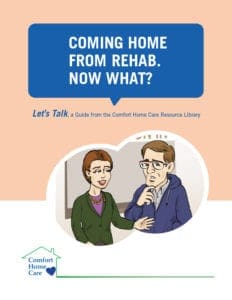
What is Rapid Onset Dementia?
Dementia can develop as a result of more than 40 different conditions. Rapid onset dementia occurs when the wasting away of brain tissue occurs faster than normal, resulting in more substantial damage in a short amount of time. Although there is no defined timeframe in which rapid onset dementia can occur, many professionals in this field describe it as when patients go from having normal cognition to dementia within one year or less. However, some types of dementia can take upwards of two years.
What are the Signs and Symptoms of Rapid Onset Dementia?
Signs and symptoms of dementia can vary depending on the underlying cause. However, the most common signs include cognitive change, memory loss, difficulty with problem-solving or completing complex tasks, and confusion or disorientation. Many people with dementia will also experience psychological changes such as depression, anxiety, personality changes, paranoia, hallucinations, agitation, and inappropriate behavior. Some causes of rapid onset dementia can be treated and possibly reversed if a diagnosis can be found quickly enough. For other people with this disease, there is no cure and a progression of symptoms is unavoidable.

Brain Health Guide
Roughly 50 million people live with some form of dementia. Our free guide discusses how to prevent or slow the disease and what symptoms to look for early detection.
What is the Average Rapid Onset Dementia Life Expectancy?
Dementia is known for its gradual onset and slow progression. However, the condition does result in a reduced life expectancy. The average rapid onset dementia life expectancy ranges from 3 to 13 years after the onset or diagnosis. However, dementia suffers with rapid onset dementia may deteriorate much faster. Individuals with rapidly progressive dementia have an average life expectancy of 4 to 18 months after the time of diagnosis. To make this time as comfortable as possible for your loved one and to improve their quality of life, choosing an in-home care agency that offers special services for dementia can be highly beneficial.
The Benefits of an In-Home Care Agency

Establishing Comfortable Routines
Many people with dementia find comfort in their routines. In the same way that staying at home can feel safe and soothing, following a routine schedule helps reduce confusion and anxiety. An in-home care provider can help people with dementia maintain a sense of normalcy by maintaining ingrained routines. This may include helping prepare breakfast at 7 AM each day or aiding with bathing or grooming in a specific order. While people with dementia may not be attuned to what they are doing as their condition progresses, having a routine can still be comforting.
Caregiver Support
Towards the end of life, people with dementia may experience a wide range of feelings, such as anger, frustration, depression, mood swings, and clinginess. It is not unusual for these individuals to lash out at the people around them or become angry at themselves. In-home caregivers have the knowledge and experience needed to help provide individuals with rapid onset dementia with a positive environment that focuses on the patient’s unique wants and needs. In addition, these caregivers are able to provide meaningful engagement and conversation that can have a positive effect on mental health.
In-Home Care Agency Services
Services offered by an in-home care agency may include, but are not limited to:
- Bathing and grooming assistance
- Walking assistance
- Dressing assistance
- Medication reminders
- Meal preparation and diet monitoring
- Shopping and errands
- Light housekeeping
- Conversation and companionship
- Appointment transportation
Progressive Symptoms
It is important to understand that people with rapid onset dementia will need more intensive care in the weeks and months following their diagnosis. As their condition progresses, their mental functioning will experience a sharp decline which makes services like in-home care invaluable. While your loved one may require minimal supervision in the early stages of their disease, more advanced services will likely be required as they reach the middle stage. By the time they reach the late stage, they may exhibit extreme confusion and will likely have trouble communicating verbally. Mood and behavior may be unpredictable and some dementia patients will experience more severe symptoms like delusions and hallucinations.
Reaching the Final Stages

Learn More About Rapid Onset Dementia
Caring for someone who has been diagnosed with rapid onset dementia can be physically and emotionally draining. It is not unusual for family caregivers to become depressed, especially when they are forced to cut back on work hours or leave their job altogether. Having professional care providers take over this responsibility can provide a great deal of relief. Learn more about rapid onset dementia by contacting an in-home care agency today.






